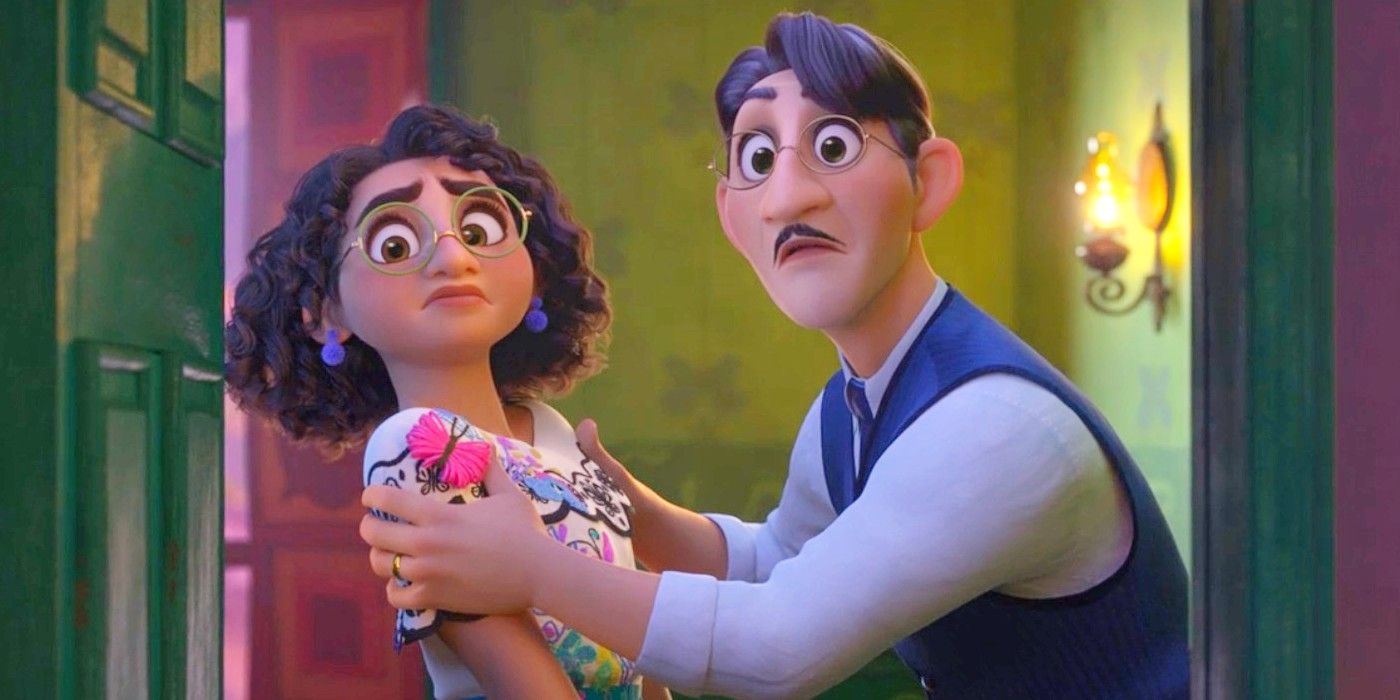Disney’s Encanto took great care to accurately represent Colombian culture, even including an NSFW Easter egg that only Spanish speakers understood. A now widely popular animated musical, Encanto told the story of the Madrigals, a Colombian family that received a miracle through an enchanted candle. After the Madrigals were forced to flee their village, the miracle gave the family a new home and each child a magic power. However, the youngest daughter in the family, Mirabel, did not receive a gift, only making her journey to discover the threat to her family’s magic more dangerous.
While Encanto featured traditional Colombian clothing, foods, and musical styles, the animated film also included many references to the Spanish language. One song, “Dos Oruguitas” (“Two Caterpillars”), was entirely in Spanish, and there were many Spanish words and phrases. The most prominent Spanish words were encanto (charm or enchantment) and casita (house), which the Madrigals called their home. Fittingly, Encanto used many familial terms, such as familia (family), tía (aunt), and Abuela (grandmother). Encanto also used several Spanish expressions, such as oye (similar to the interjection “hey!”) and Dios mío (oh my gosh).
However, one expression in Encanto was a common reference to a Spanish swearword. Just before family dinner, Mirabel revealed to her father, Agustín, that she was in her Uncle Bruno’s last vision. While Agustín wanted to keep this secret until after dinner, the two realized that Mirabel’s cousin, Dolores, had overheard them and would probably tell the rest of the family. In response, Agustín said “miércoles.” Given that this word has both a literal and a figurative translation, it served as an Easter egg for Spanish speakers that reflected Colombian culture.
Literally, miércoles translates to Wednesday. However, miércoles sounds similar to a swear word in Spanish, so adults often say it instead in front of children. In this way, miércoles is both a day of the week and a euphemism, like “shoot” in English. This is a well-known trick for Spanish language speakers, but Encanto’s non-Spanish-speaking audiences would more than likely miss it.
In addition, Encanto featured several other forms of nonverbal communication that are specific to Colombian culture. For example, Dolores makes a squeaking “hm” sound whenever she is nervous. Encanto’s characters also used typical Colombian gestures. Mirabel pointed with her lips as she encouraged Antonio to open his present, and Camilo did an African finger snap when Antonio entered his new room for the first time. By including both Colombian mannerisms and Spanish expressions, Encanto featured Easter eggs that enhanced the film’s representation of Colombian culture and the authenticity of its characters.


